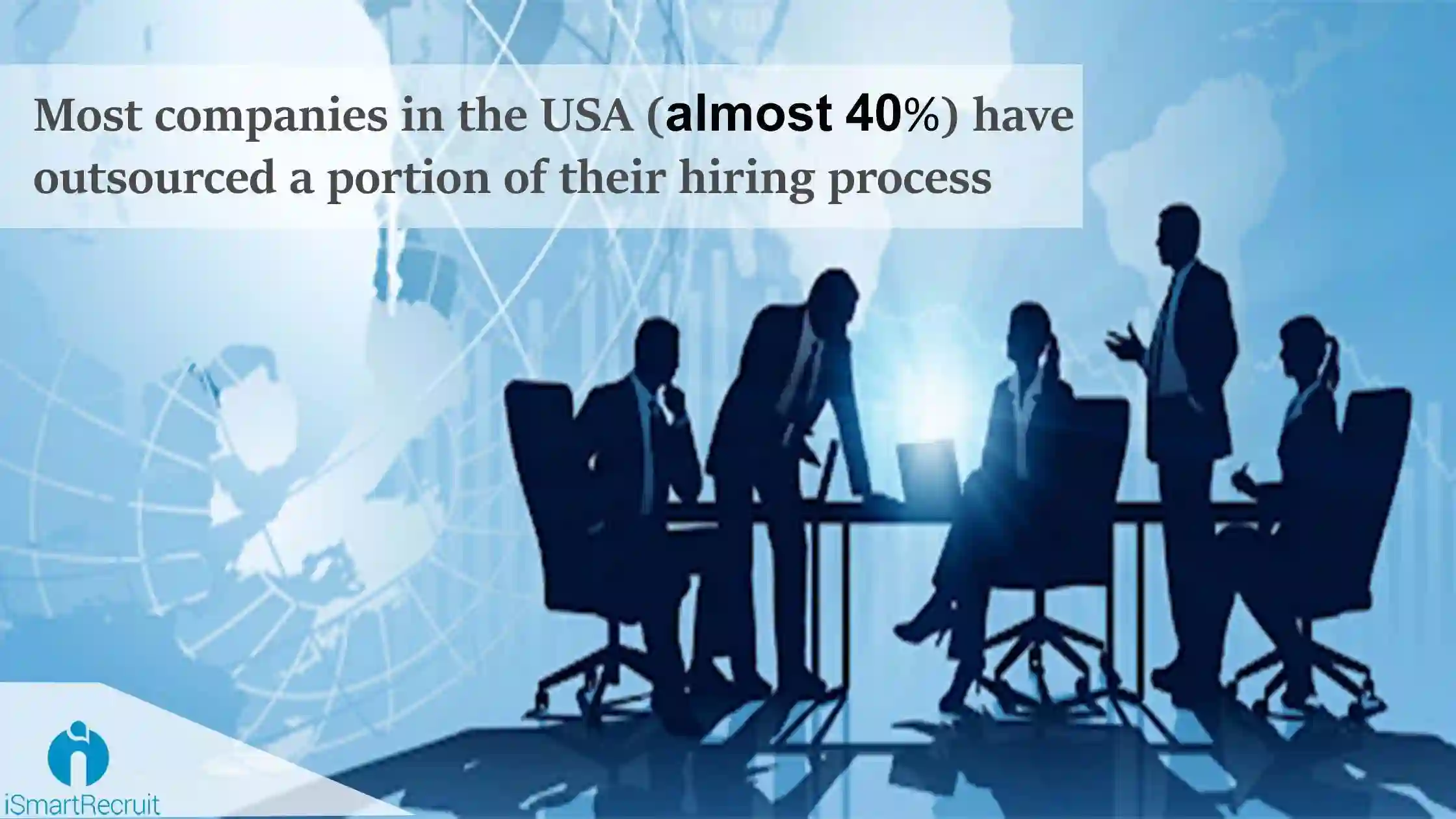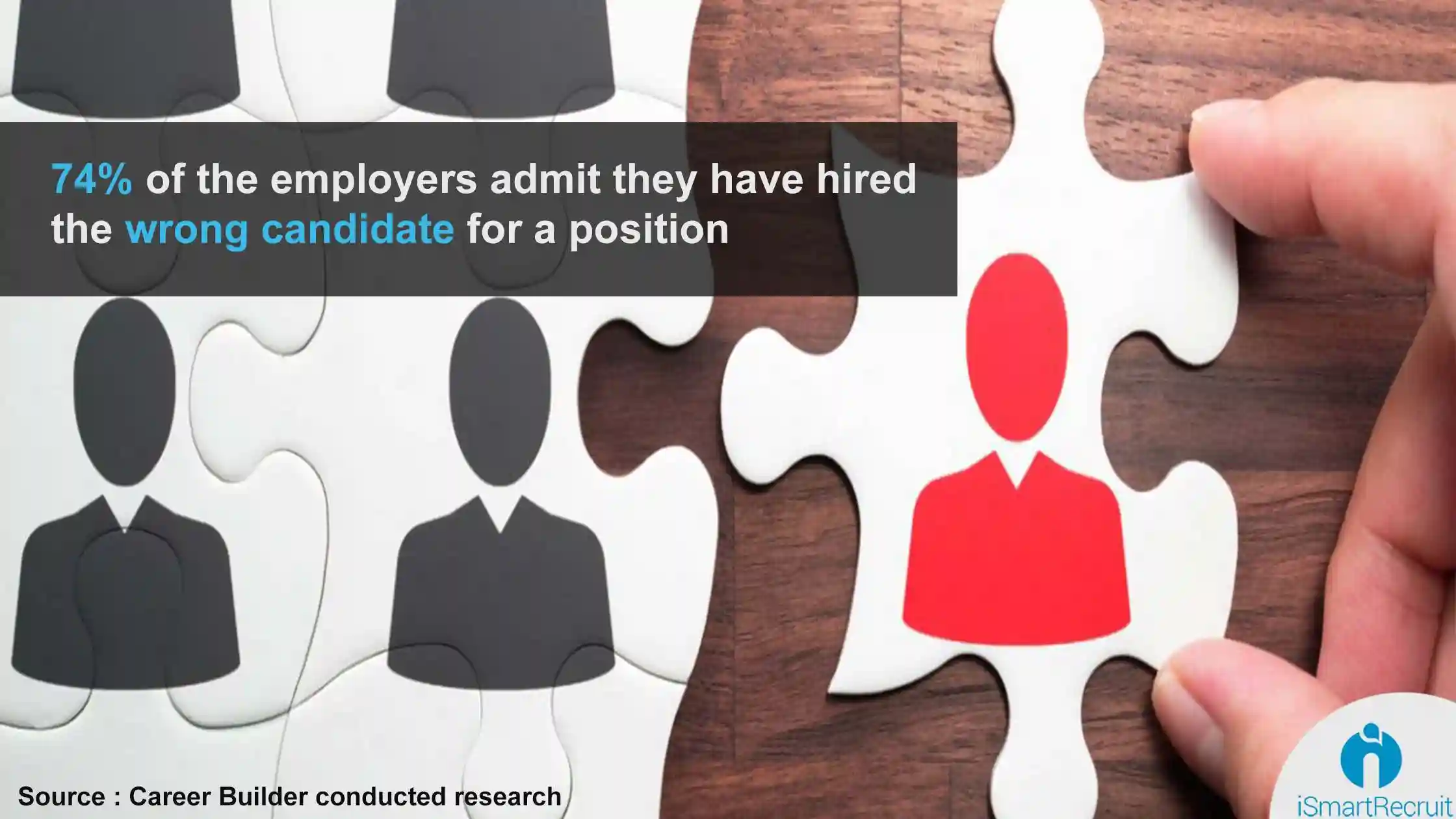Sourcing the right employee is challenging. If you end up hiring the wrong one, this could be a costly affair but if you are fortunate enough to find the right one, you would be developing a successful employment relationship, boosting productivity, and leaving a positive impact on the overall work environment.
Onboarding the right person for the job is just as important as developing an effective performance appraisal process, workplace investigation process, etc. Most companies in the USA (almost 40%) have outsourced a portion of their hiring process. That doesn't mean there is nothing you can do to source the right candidate (if you have outsourced hiring).
A Hiring Manager's Guide to Hiring the Right Employee
There are some unconventional tips every hiring manager must be aware of.
Forget standard interview procedures for a while and embrace the modern approach to finding the ideal candidate for the position vacant. Let's begin:
1. Go beyond the standard job interview
What does a typical job interview look like, you ask? It's a conference room meeting where you are shown a pristine resume and you ask the interviewee standard questions like:
-
Why should we hire you?
-
What are your strengths and weaknesses?
-
Where do you see yourself in 5 years and so on….
The interviewee answers these questions like a pro, you do a reference check, make an offer and hire them, and hope that everything works out fine. A month later, the new hire starts complaining about the work. As a result, you start wondering if this was a mistake.
To avoid this, go beyond the typical interview. Find new ways of understanding how that person thinks. At the same time, make things challenging. Put them in a situation where they are likely to show their true selves.
2. Throw a curve ball
Unusual questions can prove to be highly useful. These are great to open up a candidate and encourage them to offer their valuable insights. All smart candidates will be prepared for unusual interview questions. In fact, they will try finding clever ways to turn the negatives into positives.
Just to get beyond the rehearsed answers. don't brain tease the interviewee. Questions to avoid include "how many golf balls can you fit in a car?" Such questions are a complete waste of time. They don't predict anything. They simply make the interviewer feel smart and that's not the goal you are trying to achieve, right?
3. Get others' opinions
Talking to others about the candidate in question can either confirm your perceptions or prove them wrong. Even if you think you are the best judge of character, the blind spots always remain.
To get different perspectives on a candidate, ask at least 3 colleagues to meet them. The person you are hiring is ultimately going to meet the team. Why not allow them to interact so that your team can share their opinion and you can ensure this particular person is a good hire.
Tap into the power of LinkedIn to find references for the candidate within your network. Press them for an unvarnished opinion about the strengths and weaknesses of that person.
4. Give importance to diversity
Every organization wants an innovative team and to build one, you must find people who think differently. In other words, make your workforce diverse. It will allow you to innovate, be creative and solve problems. McKinsey research says that companies with racial and ethnic diversity are likely to see 35% more financial benefits. In other words, organizations that belief in building a diverse workforce will experience a spike in the bottom line.
Keep in mind diversity matters not because it makes your organization look good but because it's truly useful. It allows you to advance, break the stereotypes and create a new playbook of strategies instead of following the old methods. The more perspectives you have (coming from a diverse workforce), the more you are likely to excel.
5. Assign them some homework (Paid)
Career Builder conducted research and found that 74% of the employers admit they have hired the wrong candidate for a position. This is common especially when you don't conduct a skill assessment test.
Speaking of tests, on-site tests certainly help access the candidate, but some people fail to perform because of the time constraints and the pressure to "perform well." Hence, to give the candidate another chance, assign them a paid homework. It could be any small task that will help you judge the abilities of the person.
This will also show you how committed they are when it comes to working at your organization. The way they communicate with you via email will also give you a clear sense of how that candidate thinks and communicates.
6. Identify if they are the right cultural fit
Every organization has a culture they take pride in. Let's assume your organization arranges collaborative initiatives time after time. You encourage your team members to engage in events, hackathons, workshops, etc. It's best to explain how your team members are expected to contribute in different areas outside of work.
Some organizations expect their employees to be available for unexpected commitments. In that case, proactive communication is imperative. This needs to be communicated upfront too. If the applicant would turn off their phone at 7 P.M. or decline invitations to additional activities, they are obviously not the right cultural fit.
7. Trust your instincts
In the end, put your instincts to work. If you have doubts about a candidate, find the "why". Sometimes, everything seems alright on the surface but you still have doubts. Don't make the mistake of NOT listening to these doubts. The nagging suspicion that you have during the interview process about the candidate's attitude will magnify after you have hired them. This is exactly why you shouldn't settle for the first person you meet even if there's this pressure to fill the position quickly. Of course, no one has a perfect performance track record. But you have to find the right balance.
Wrap Up With Hiring the Right Candidate!
Every hiring manager wants talented and driven individuals who will add diversity to their team while being a good fit for the company's culture. They also want to avoid making hiring mistakes, which is more costly than being understaffed. This blog brings you these unconventional tips to find the right candidate from sourcing to interviewing and then onboarding.














